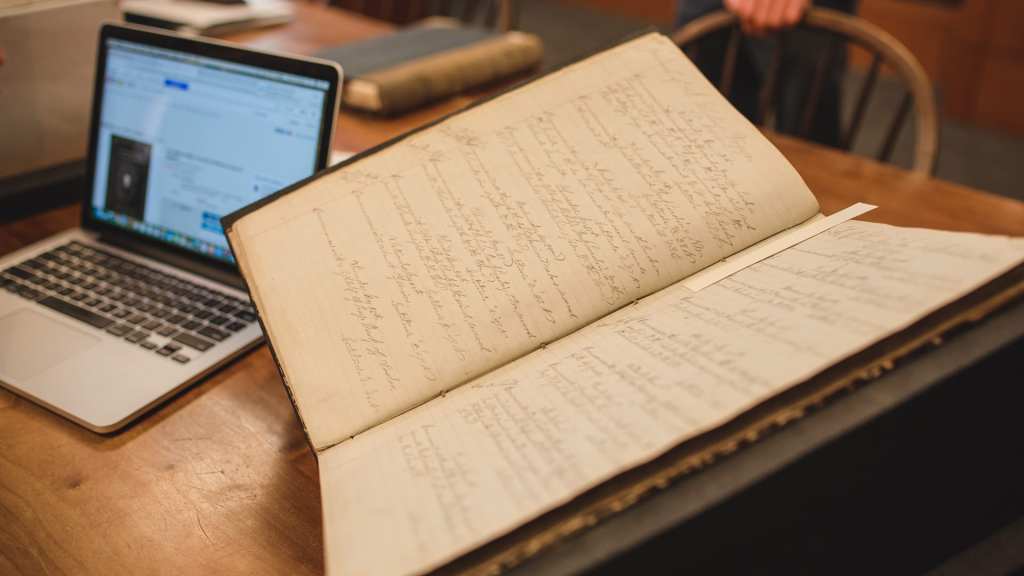When 19th century whalers jotted down weather and temperature measurements at sea, few might have imagined that their logbooks would become records of a warming planet more than 150 years later.
But that’s exactly the kind of value that climate scientists such as Caroline Ummenhofer of the Woods Hole Oceanographic Institution see in whaling logbooks. Packed with daily local observations, they can be used to corroborate climate change trends revealed in standardized temperature readings and geological records.
Videos by VICE
Ummenhofer has partnered with Timothy Walker, a historian at the University of Massachusetts Dartmouth, to collect and examine the thousands of logbooks preserved in many institutions around New England, which was the epicenter of America’s whaling industry.
The notes taken by whaling captains and first mates can help to fill in some of the gaps left in the record of mean global temperatures, which only extends back to 1880. American whaler diaries, in contrast, have been kept since the late 1700s, adding more than a century of supplementary observations to the climate record.
The logbooks also contain information about remote ocean locations rarely visited by other types of vessels, at that time, such as war and merchant ships, which tended to stick to established sea routes. Whalers deviated from these shipping lanes to find far-flung areas known for an abundance of marine mammals.
“If [whalers] were spending a lot of time cruising in an area where we want to gather weather data from 200 years ago, then for our purposes that’s fantastic,” Walker told Motherboard in a Skype call. “We can go in and record the data and build up a mosaic of data points which then allows the scientists to calculate a model of what the weather might have looked like at that time and place.”
In particular, regions such as the Azores Islands or the Indian Ocean can be contextualized by whalers’ accounts of monsoons, storms, and other local weather phenomena.
“What’s new and interesting and innovative about our project is that we’re looking at parts of the world that have been notoriously understudied,” Walker said.
For instance, whalers and many other mariners depended on the windy conditions in the so-called Roaring Forties band of latitude to propel them across the Indian Ocean. In recent decades, however, the winds have been shifting south into latitudes known as the Furious Fifties. Whaling logbooks may contain clues about how and when this trend began.
Read More: Cleopatra’s Downfall Was Partly Sparked by Climate Change and Volcanoes
“We like to think our project fascinating because it’s marrying together two skillsets that you normally don’t get to have together like a climate scientist that uses high-end computer modeling that is dependent on a historian in an archive reading old handwriting,” Walker said.
“For us this is really the magic of the project.”
Update: This article has been updated to include comments from historian Timothy Walker.




